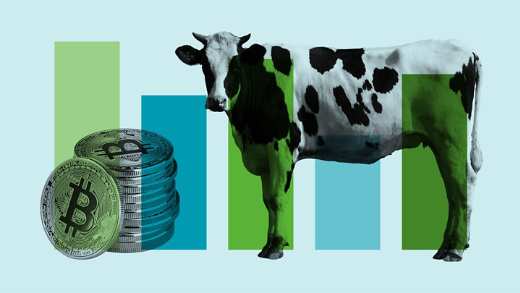In this month’s instalment of our visual series on topical themes, we look at how political events have shaped markets in 2022 and further back in time.
Read this article to understand:
- The impact of the ‘mini-budget’ on gilts and sterling
- How China’s troubles have impacted markets in 2022
- How markets reacted to major historical events
UK politics and market turmoil
Even by the standards of recent years, the last couple of months in UK politics have been dramatic to say the least. After taking office on September 6, Liz Truss resigned after only 45 days, becoming the shortest-serving prime minister in UK history. The episode was a prime example of how politics can influence markets and vice-versa.
Her fate was effectively sealed by the disastrous market reaction to 38-day Chancellor Kwasi Kwarteng’s ‘mini-budget’, which was unveiled on September 23 and included supply-side polices and tax-cuts. It sparked a sell-off in gilts (Figure 1), which led to severe stress for many pension schemes that had to quickly raise massive levels of cash to meet collateral calls, which in turn led to forced selling in virtually all liquid markets.
The panic was only alleviated when the Bank of England (BoE) intervened by purchasing long-dated government bonds to suppress yields – hardly an action a central bank pursuing monetary tightening wanted to take.
Meanwhile, the pound fell sharply to its lowest level against the US dollar since 1985 (Figure 2).
However, the announcement of Rishi Sunak as prime minister, seen as a more fiscally prudent candidate, has calmed financial markets for now.
Figure 1: UK ten-year gilt yields, 2022
Source: Aviva Investors, Eikon. Data as of October 27, 2022
Figure 2: UK sterling versus US dollar
Source: Aviva Investors, Eikon. Data as of October 27, 2022
Xi Jinping’s third term
The health of the Chinese economy and the Communist Party of China’s (CCP) policy moves are watched closely by investors around the world. Neither have given much reason for cheer in 2022. The World Bank has lowered its full-year forecast for Chinese GDP growth to 2.8 per cent, well below the CCP’s target of 5.5 per cent set earlier in the year.
Financial markets reacted negatively to the 20th National Congress of the CCP
A continuation of its zero-COVID policy, the ongoing crisis affecting the property sector and decreasing marginal returns from state infrastructure investment are taking their toll. It was unsurprising, then, that financial markets reacted negatively to the 20th National Congress of the CCP, which took place from October 16-22 and confirmed a third term for strongman leader Xi Jingping.
While October 24, the first day of trading after the Congress, was relatively positive for global equities, the opposite was true in markets directly linked to China. The Shanghai Composite index dropped two per cent; Hong Kong’s Hang Seng index dropped over six per cent; while the Nasdaq Golden Dragon China index (a composite of companies listed in the US but whose primary business activities are in China) fell a staggering 14.4 per cent (Figure 3). It is now down almost 80 per cent from its February 2021 peak.
Figure 3: China versus the rest of the world on October 24 (per cent)
Source: Aviva Investors, Eikon. Data as of October 27, 2022
As Figure 4 shows, by late October the Hang Seng was down to its lowest level since the tail end of the global financial crisis in April 2009, reversing the strong gains of the past decade.
Figure 4: Hang Seng Index
Source: Aviva Investors, Eikon. Data as of October 28, 2022
The effects of Chinese politics are not limited to domestic stocks. Taiwan Semiconductor Manufacturing Company (TSMC), the world’s largest semiconductor foundry, is perhaps the standout case study. Given the critical importance of semiconductors across industries, TSMC has been caught in the crossfire of the tech cold war between the US and China, not to mention at risk from the recent escalation in China-Taiwan tensions.
Despite its impressive underlying performance this year – TSMC recorded a record net profit of NT$280.9 billion (US$8.75 billion) in Q3, up almost 80 per cent year-on-year1 – its share price has fallen by almost 50 per cent (Figure 5).
Figure 5: TSMC share price, 2022
Source: Aviva Investors, Eikon. Data as of October 27, 2022
Ukraine-Russia war
Of course, no review of politics and markets this year would be complete without assessing the fallout from the Russia-Ukraine war.
The Russian stock market became uninvestable almost overnight after the invasion of Ukraine
Figure 6 shows how the Russian stock market became uninvestable almost overnight after the invasion of Ukraine on February 24. That status remains. Meanwhile, the knock-on impacts of the war – fuelling commodities and energy prices, which has exacerbated inflationary pressures and caused a decline in the growth outlook – have been felt far and wide. By way of example, the MSCI World benchmark is down over 20 per cent this year.
Figure 6: MSCI Russia versus MSCI World, 2022
Source: Aviva Investors, Eikon. Data as of October 27, 2022
Politics and history
While political events have undoubtedly shaped markets this year – and vice-versa in the case of the UK – history does not necessarily offer consistent evidence of a correlation between the two, as the three examples in Figure 7 show.
History does not offer consistent evidence of a correlation between political events and market movements
Analysis of S&P 500 reactions to major political events reveals that while Germany’s invasion of France (as well as Belgium, the Netherlands and Luxembourg) in May 1940 saw significant repercussions, the polar opposite was true in response to the start of the Gulf War in August 1990. Meanwhile, while there was a severe immediate reaction to the September 11 terrorist attacks on US soil, the recovery was swift despite the heightened and prolonged period of geopolitical tensions that followed.




